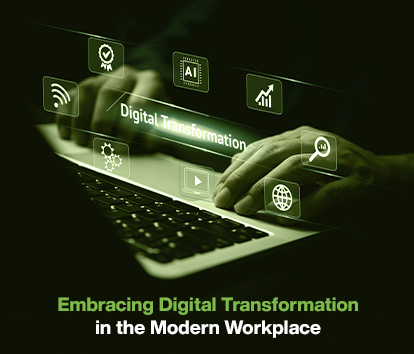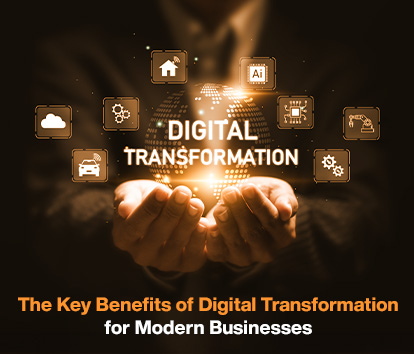
Do You Know How to Give Constructive Feedback Effectively?
18 Jun 2024
Leadership Lessons – How to Lead with Both Efficiency and Effectiveness
10 Sep 2024
The modern workplace is evolving faster than ever, with businesses racing to keep up with the pace of innovation. Digitization is becoming the backbone of how companies operate. From cloud solutions that enable seamless file storage to tools that keep remote teams as connected as if they were in the office, the move toward digital is transforming how we work and collaborate.
These emerging tools and strategies aren’t just about staying up-to-date - they’re about enhancing how we engage with our teams, serve our customers, and protect our business from growing cybersecurity threats. And as we navigate this new landscape, understanding how to effectively manage virtual and hybrid teams becomes crucial for any organization aiming to succeed in this new era of work.
Managing People & Culture
With the rise of hybrid work, keeping remote and in-office employees engaged is more important than ever. To create a truly inclusive environment, it's essential to use digital tools that bridge the gap between teams, ensuring everyone feels connected and involved.Tools like online resource hubs that record and transcribe meetings can make a big difference, helping remote workers stay in the loop and contributing to a stronger team dynamic.
Digital tools don't just enhance engagement, they also boost productivity and make collaboration easier for everyone. However, it's crucial to remember that digital solutions should be tailored to fit the unique needs of different teams, ensuring that everyone stays on the same page.
True digital transformation isn't just about adopting new tools, it's about shifting the culture within the organization. Leaders play a key role in nurturing a culture of innovation and continuous learning, where employees feel empowered to embrace change and adapt to new technologies.
By fostering collaboration and breaking down barriers between teams, organizations can make sure that their digital transformation is not only successful but also lasting and meaningful for everyone involved. This cultural shift sets the foundation for creating more meaningful and personalized customer interactions, as well.
Personalizing Customer Journeys
As customer expectations keep changing, digital transformation is key to staying ahead. By using digital tools wisely, companies can offer more personalized and seamless experiences across channels like chatbots, social media, and email. This real-time connection not only makes customers feel valued but also helps build stronger, long-lasting relationships.In the retail world, for instance, e-commerce platforms that prioritize user-friendliness and personalized recommendations tend to attract and retain more customers. By leveraging customer data, businesses can gain insights into preferences and behaviors, enabling them to customize offerings and create a more engaging shopping experience.
Customer service is the backbone of any great business and should never be overlooked during digital transformation. With tools like remote diagnostics, predictive maintenance, augmented reality, and AI, companies can make customer service faster and more effective.
These technologies help solve problems quickly, build trust, and enhance the overall reputation of the brand with customers and partners alike. When a company’s internal culture aligns with how it treats its customers, it creates a powerful synergy that leads to real success.
The Overall Impact
Measuring the success of digital transformation is essential to see if it's truly paying off. One way to gauge this is by looking at hard numbers like revenue growth, cost savings, and how well you’re attracting and keeping customers.For example, when a business goes digital, it can reach a broader audience and boost sales, leading to higher revenue. On top of that, digital tools can streamline processes and cut down on manual work, saving costs and making operations run more smoothly.
But it’s not just about the numbers. Digital transformation also plays a big role in how you connect with customers. By effectively using digital channels, you can attract new customers and build stronger relationships with the ones you already have.
For instance, offering a user-friendly app can increase customer loyalty and bring in new clients. Plus, digitizing processes helps eliminate bottlenecks, making collaboration easier and overall operations more efficient, adding even more value to the transformation.



